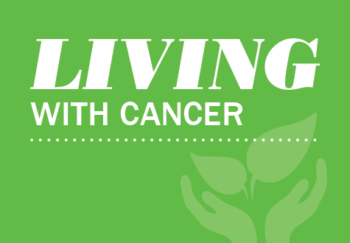
If you or a family member have HIV/AIDS and cancer, you may have many questions. Since both HIV and cancer treatment can weaken your immune system, does that limit your treatment options or survival rates?
Years ago, the answer may have been yes. Patients with HIV/AIDS already have a diminished immune system, which may make it hard for the body to defend itself, allowing cancer to grow and spread. Plus, traditional treatment options like chemotherapy and radiation can further weaken the immune system, leading to severe side effects.
However, advances in scientific research and medical treatment, particularly the development of drugs that effectively treat and control HIV infections, have led to better survival rates.
Now, patients with HIV and cancer have many treatment options and are often treated the same as patients without HIV, according to the American Cancer Society.
HIV and Cancer Treatment Options
For all people with cancer — with or without HIV — treatment decisions are based on the type of cancer, stage, potential side effects and a patient’s overall health, according to the American Society of Clinical Oncology.
Your cancer care team and HIV team will work together to recommend a plan to manage both of your conditions, working to minimize side effects or drug interactions. In general, treatment options may include one or more of the following:
- Antiretrovirals: Antiretrovirals or anti-HIV drugs are a key part of a patient’s plan for managing HIV and cancer treatment. They help to keep HIV infection in check and boost a patient’s immune system. As a result, patients are able to receive a standard dose of chemotherapy or radiation as recommended by their healthcare team, so it’s important to take this medication during and after treatment.
- Surgery: In some cases, doctors can perform surgery to remove a tumor and cancer cells from the body. Surgery is typically an option if the cancer has not spread.
- Radiation: Doctors may choose to use radiation therapy to deliver high-energy radiation to destroy cancer cells. Treatment may be given externally, where radiation is delivered by a machine, or internally, where radiation is placed inside the body near the cancer cells.
- Chemotherapy: With chemotherapy, medication is administered either intravenously or via a pill to halt the ability of cancer cells to grow and spread. Patients usually receive a specific number of cycles of chemo, which may consist of one drug or a combination of drugs.
- Immunotherapy: This recent advance in cancer treatment uses the body’s own immune system to fight cancer while keeping damage to healthy cells in check. Immunotherapy stimulates the immune system to work harder or smarter by helping it recognize and target cancer cells.
- Targeted therapy: Targeted therapy is another way to specifically target cancer cells while limiting damage to your healthy cells. There are many different types of targeted therapies, which target a specific protein, genes or other factors that may support the growth of cancer cells.
- Clinical trials: Clinical trials are an important part of cancer research. They help scientists identify new and better ways to prevent and treat cancer. For patients with HIV/AIDS, clinical trials may also be an option, so talk to your healthcare team.
What to Consider
Managing both HIV/AIDS and cancer can be complicated, so find an oncologist who has experience working with people with HIV, understands the relationship between the two conditions, and knows how your medications may interact with each other. Your treatment and medication doses may need to be adjusted depending on your health and other conditions.
If you have HIV/AIDS and cancer, the doctors at UVA Cancer Center can help determine the best treatment options for you.
While HIV may weaken your immune system, it no longer limits your cancer treatment options. If you have both HIV/AIDS and cancer, talk to your cancer care team about what therapies and medications may be right for you.

